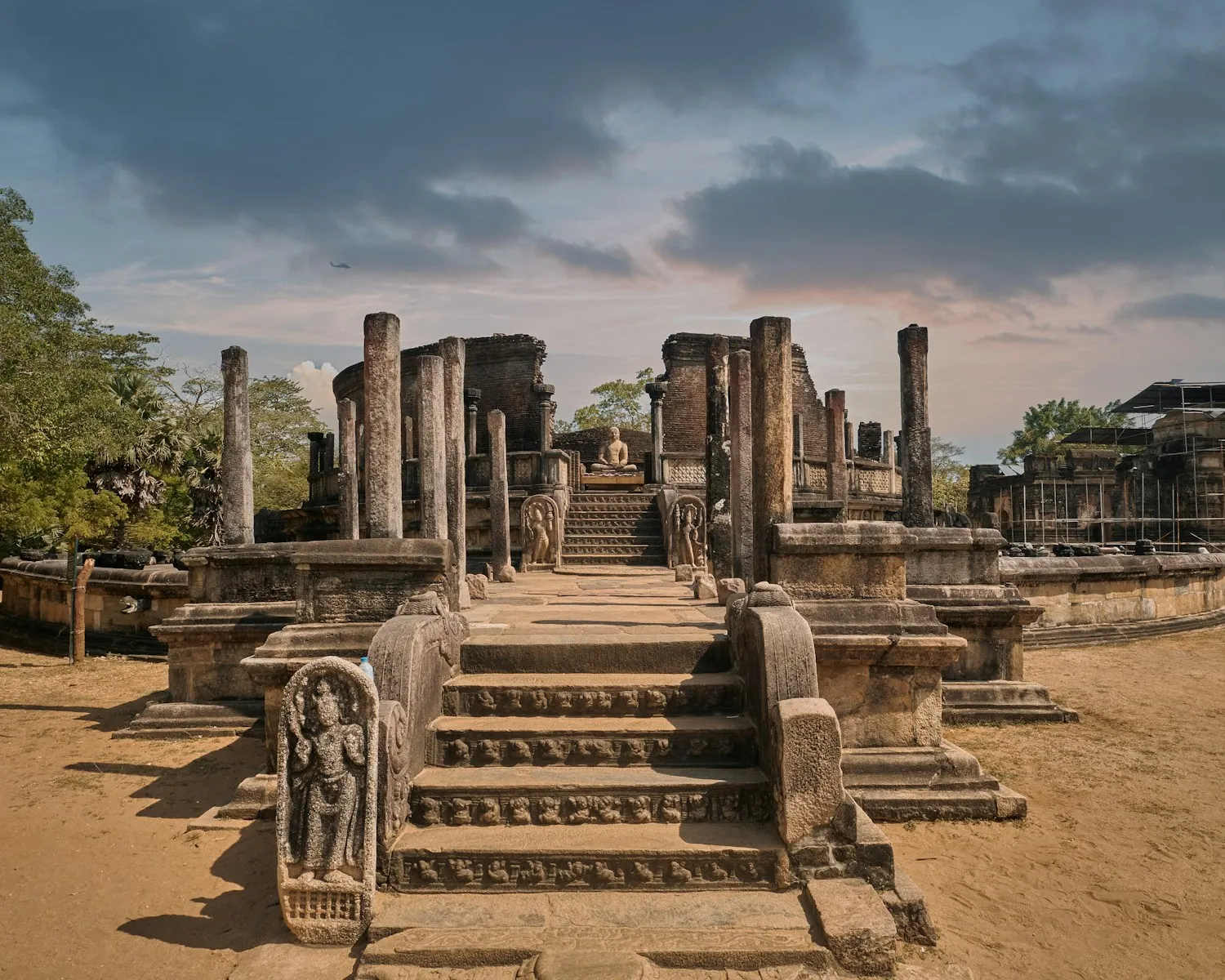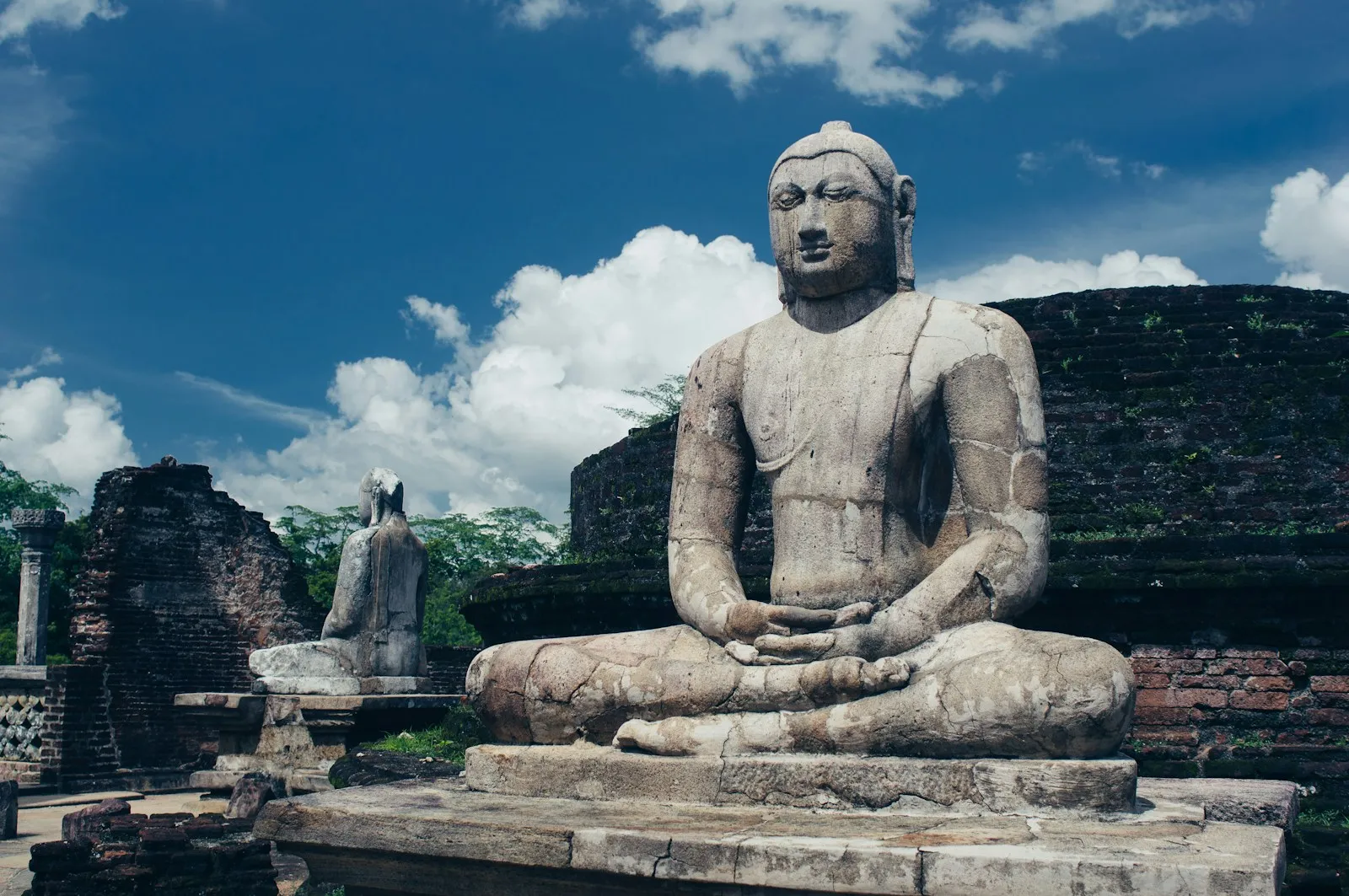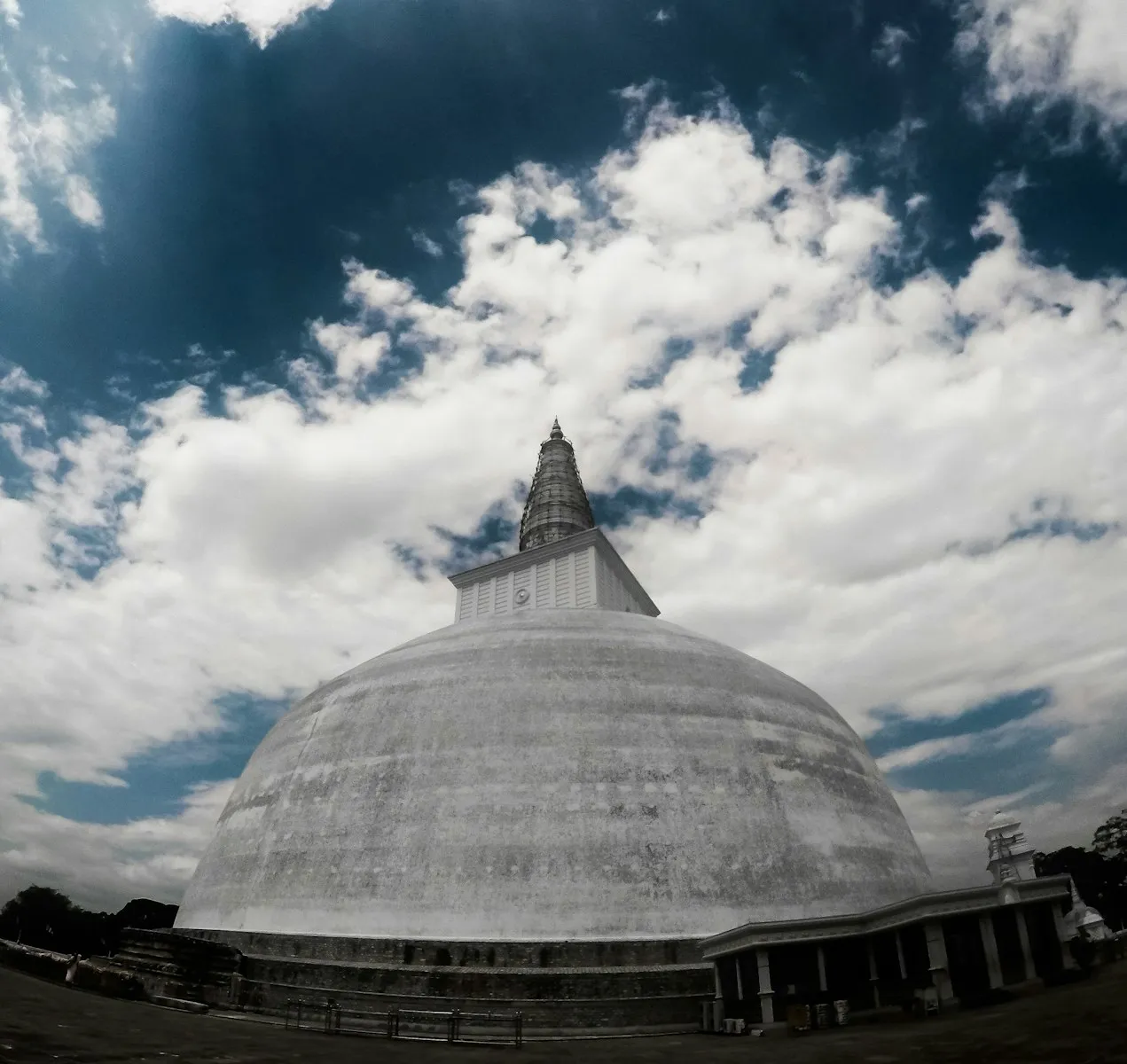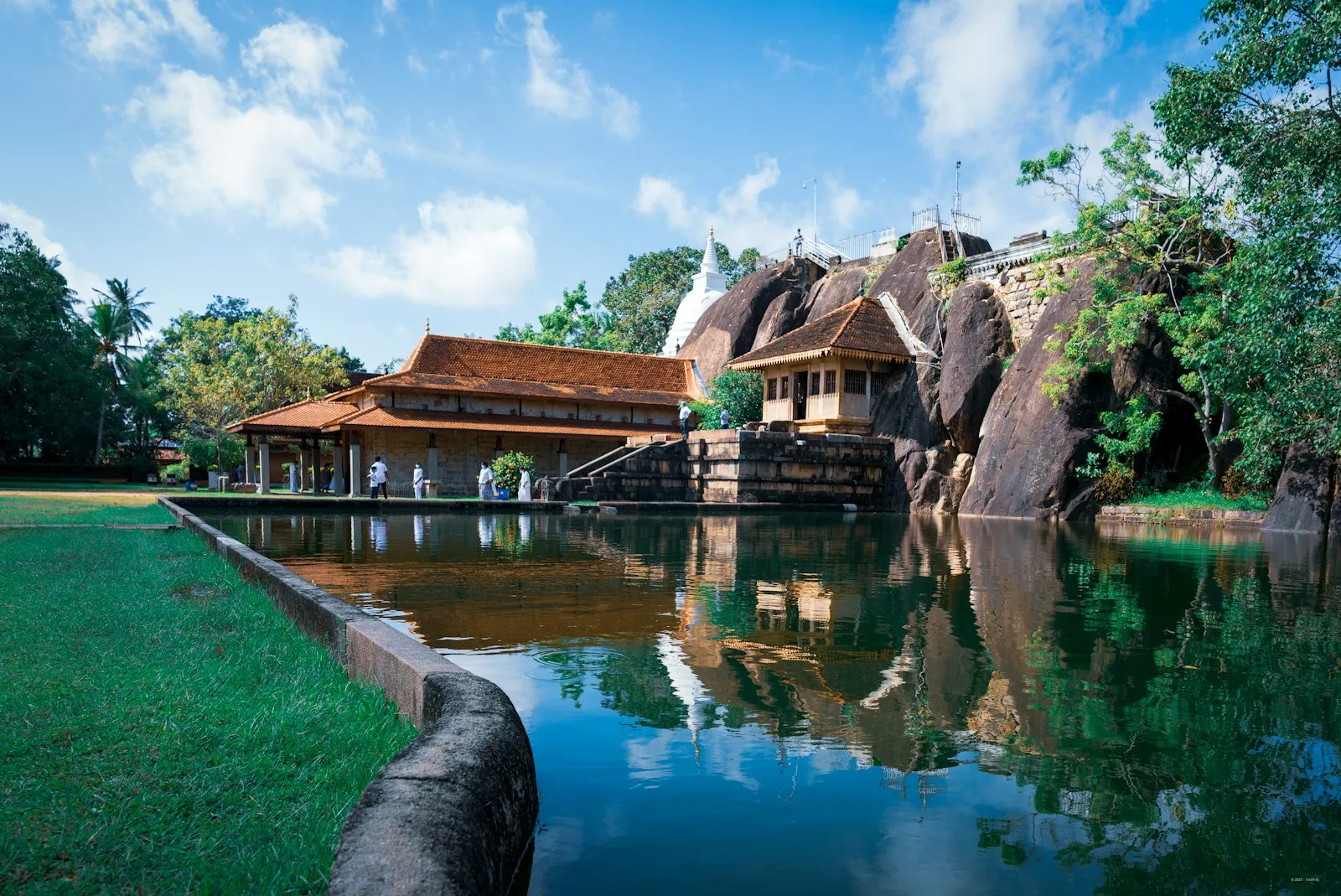Polonnaruwa: Sri Lanka’s Medieval Masterpiece – Travel Guide
Walk through the remarkably preserved ruins of Sri Lanka’s second ancient capital, where stone palaces, intricately carved temples, and colossal Buddha statues stand testament to a glorious medieval civilization. Polonnaruwa’s UNESCO-listed archaeological park offers one of Asia’s most complete pictures of ancient urban planning.
Decipher Polonnaruwa’s wonders with experts! DanBrothersCeylon offers specialized tours that reveal the stories behind these medieval marvels.
The Historical Significance of Polonnaruwa
After the fall of Anuradhapura in the 10th century, Polonnaruwa became Sri Lanka’s royal capital under King Vijayabahu I. The city reached its zenith in the 12th century under King Parakramabahu I, whose visionary hydraulic systems turned the arid region into a fertile “rice bowl of the East.” The sophisticated irrigation network, including the massive Parakrama Samudra tank, supported a flourishing civilization that produced extraordinary art and architecture.
Unlike Anuradhapura’s scattered ruins, Polonnaruwa’s compact royal precinct and religious monuments offer visitors a clearer understanding of medieval Sinhalese urban design.
Must-See Marvels of Polonnaruwa
Quadrangle (Dalada Maluwa)
This sacred precinct contains Polonnaruwa’s greatest concentration of monuments, including the Vatadage (circular relic house) with its exquisite stone carvings, the Thuparama image house with its brick dome, and the stunningly preserved Gal Potha (Stone Book) – a 9m long stone slab recording King Nissanka Malla’s exploits.
Gal Vihara
Marvel at this quartet of magnificent Buddha statues carved from a single granite outcrop, including a 14m reclining Buddha and 7m standing figure with crossed arms – considered masterpieces of ancient Sinhalese rock carving.
Royal Palace Complex
Explore the remains of King Parakramabahu’s seven-story palace (only three floors remain), the royal baths, and the beautifully carved audience hall with its lion staircases and elephant friezes.
Parakrama Samudra
Walk along the massive 12th-century reservoir (sea of Parakrama) that irrigated the kingdom. Covering 2,500 hectares, this engineering marvel demonstrates the advanced hydraulic knowledge of Polonnaruwa’s builders.
Lankatilaka Temple
Stand in awe before this enormous brick-walled shrine with its 17m high standing Buddha and remarkably preserved stucco decorations on the walls and ceiling.
Unique Polonnaruwa Experiences
Cycling the Archaeological Park
Rent a bicycle to explore the extensive site at your own pace, stopping to examine intricate carvings and chat with resident monkeys that guard the ancient monuments.
Sunrise at Gal Vihara
Arrive at dawn when the first golden light illuminates the giant Buddha statues, creating magical photo opportunities before the crowds arrive.
Birdwatching at Ancient Tanks
Spot kingfishers, egrets, and other waterbirds around Polonnaruwa’s ancient reservoirs, where the irrigation systems still function after 800 years.
Local Village Visit
Discover how traditional agricultural practices begun in Polonnaruwa’s golden age continue today in nearby farming communities.
Explore Polonnaruwa with DanBrothersCeylon
Our specialized tours bring the medieval capital to life:
- Archaeologist-Guided Tours: Expert interpretation of the ruins
- Bicycle Exploration: Cover more ground with our guided cycling tours
- Cultural Triangle Combo: Combine with Anuradhapura and Sigiriya
- Photography Tours: Capture the ruins in perfect light
- Customized Itineraries: Tailored to your interests and schedule
Practical Information for Visitors
Best Time to Visit
The ideal months are January to April when temperatures are milder. Early morning visits (7-10am) avoid the midday heat. The site is particularly atmospheric in the late afternoon when the stone monuments glow golden.
Getting There
- From Colombo: 5-6 hours by car (230km) via the A6 highway
- From Sigiriya/Dambulla: 1.5-2 hours by car through cultural triangle
- From Anuradhapura: 2-2.5 hours by car (103km)
- Private Transport: Most comfortable option with DanBrothersCeylon
Temple Etiquette & Dress Code
- Shoulders and knees must be covered at all religious sites
- Remove shoes before entering sacred areas (bring socks for hot stone surfaces)
- Maintain respectful behavior – no loud talking at prayer sites
- Don’t pose with your back to Buddha statues
- Flash photography prohibited in some image houses
Nearby Attractions
Combine your Polonnaruwa visit with these highlights:
- Minneriya National Park: Witness the “Gathering” of hundreds of elephants in dry season
- Dambulla Cave Temple: Magnificent rock temple with ancient frescoes
- Wasgamuwa National Park: Less-crowded wildlife viewing with elephants and leopards
- Somawathiya Chaitya: Ancient stupa in a wildlife-rich floodplain
Step Into Medieval Splendor
Polonnaruwa offers a uniquely accessible window into Sri Lanka’s medieval golden age, where remarkably preserved stone monuments let you walk through royal palaces, sacred temples, and monastic complexes much as they appeared 800 years ago. The city’s compact layout and superb carvings make it one of Asia’s most rewarding archaeological experiences.
Whether you’re a history enthusiast, architecture lover, or cultural explorer, Polonnaruwa’s harmonious blend of art, engineering, and nature creates memories that endure long after your visit.
Let DanBrothersCeylon guide you through this medieval masterpiece with tours that reveal both the grand vision and intricate details of Sri Lanka’s second great capital.





